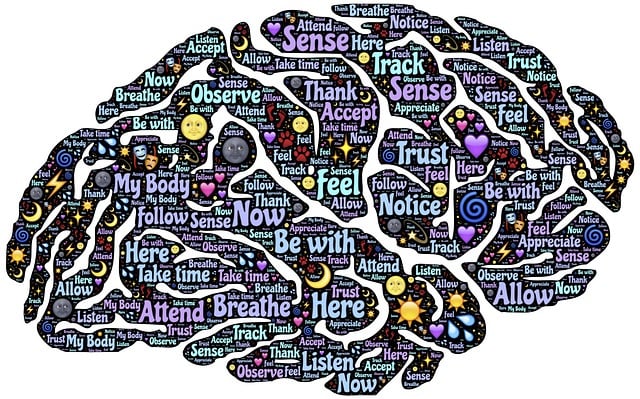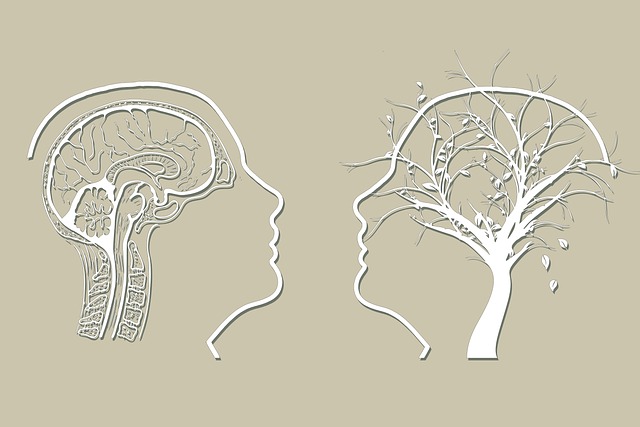Mental illness stigma significantly impacts adults who have experienced sexual abuse, hindering healing. Specialized therapy tailored to complex trauma, safe spaces, open dialogue, stress management, and direct stigma addressing are crucial. Community education through workshops, mental wellness coaching, and sharing survivor stories reduces stigma and fosters empathy. Policy changes and advocacy ensure fair treatment, with countries implementing early intervention programs, improved access to "therapy for adults sexual abuse survivors," and integrating mental health into public strategies. Despite progress, continued education, conversations, and policy reforms are needed for full destigmatization.
Mental illness stigma reduction efforts are crucial in fostering understanding and support for survivors of sexual abuse. This article delves into key strategies to combat the significant impact of stigma. We explore the role of therapy in empowering adults who have experienced sexual abuse, providing tools to navigate societal barriers. Additionally, we discuss community education and empathy-building initiatives, policy advocacy, and celebrating progress while acknowledging ongoing challenges. By understanding these approaches, we can enhance support systems for this vulnerable population.
- Understanding the Impact of Stigma on Sexual Abuse Survivors
- The Role of Therapy in Breaking Down Stigma Barriers
- Strategies for Educating and Empathizing Communities
- Policy Changes and Advocacy: A Pathway to Reduced Stigma
- Celebrating Progress, Acknowledging Work Ahead
Understanding the Impact of Stigma on Sexual Abuse Survivors

The stigma surrounding mental illness often exacerbates the challenges faced by adults who have experienced sexual abuse. Survivors may internalize societal judgments and fears, leading to self-stigma and a reluctance to seek help. This can significantly impede their path to healing and recovery. In many cases, the trauma of sexual abuse is not immediately recognized, as symptoms may manifest in unique ways and are often interwoven with other mental health issues.
Effective support for these survivors requires a nuanced understanding of the impact of stigma. Therapy for adults sexual abuse survivors should prioritize safe and non-judgmental spaces where they can share their experiences. Communication strategies that encourage open dialogue, combined with stress management techniques tailored to their needs, can facilitate emotional healing processes. By addressing stigma head-on, support systems enable survivors to rebuild trust, reclaim their agency, and embark on a journey towards holistic recovery.
The Role of Therapy in Breaking Down Stigma Barriers

Therapy plays a pivotal role in breaking down stigma barriers surrounding mental illness, especially for marginalized communities like adults who have experienced sexual abuse. Through specialized therapeutic approaches tailored to address complex trauma, individuals can begin their journey towards healing and improved mental wellness. This process involves developing essential skills in emotional regulation, which is crucial for managing symptoms associated with traumatic experiences.
In the context of cultural sensitivity in mental healthcare practice, therapy offers a safe space where survivors can explore and confront internalized stigma without judgment. Skilled therapists facilitate open dialogue, helping clients to challenge societal misconceptions and misinformed beliefs about mental illness and sexual abuse. The integration of mental wellness coaching programs within therapeutic settings further empowers individuals to take charge of their healing process, fostering resilience and self-acceptance in the face of adversity.
Strategies for Educating and Empathizing Communities

Educating communities about mental illness is a powerful tool to reduce stigma and foster empathy. Starting conversations around mental health in schools, workplaces, and community centers can help normalize discussions about psychological well-being. Workshops and seminars led by mental health professionals or survivors of mental illness can provide valuable insights into the lived experiences of individuals dealing with various conditions. These platforms offer opportunities for people to learn about different disorders, dispel myths, and understand the importance of support systems in recovery.
Furthermore, leveraging resources such as Social Skills Training and incorporating practices like Positive Thinking and Mental Wellness Journaling Exercise Guidance can empower communities to offer meaningful assistance. Encouraging empathy through personal narratives shared by survivors, especially those who have overcome challenges related to adult sexual abuse, can be transformative. Such storytelling sessions not only shed light on the resilience of the human spirit but also equip listeners with strategies to support their friends and family members navigating mental health struggles.
Policy Changes and Advocacy: A Pathway to Reduced Stigma

Policy changes and advocacy play a pivotal role in stigma reduction for mental illness, especially for marginalized communities like adults who have experienced sexual abuse. Many countries are recognizing the need to update legislation to protect individuals facing mental health challenges, ensuring they receive fair treatment within healthcare systems. This includes initiatives that promote early intervention, improve access to specialized therapy for adults sexual abuse survivors, and integrate mental wellness into broader public health strategies.
Advocacy groups and non-profit organizations are driving these changes by raising awareness through various channels, such as the development of engaging Mental Wellness Podcast Series Productions and the launch of impactful Public Awareness Campaigns. By sharing personal stories, providing educational resources, and fostering open dialogues, these efforts challenge societal norms and stereotypes associated with mental illness. Additionally, they advocate for evidence-based practices, including Stress Management Workshops Organization programs that teach coping mechanisms, aiming to destigmatize help-seeking behaviors and encourage individuals to prioritize their mental wellness.
Celebrating Progress, Acknowledging Work Ahead

Over the years, significant progress has been made in reducing the stigma surrounding mental illness, especially within communities that have historically been marginalized. Efforts to destigmatize mental health issues have empowered many individuals, particularly sexual abuse survivors, to seek therapy and support. With increased awareness and understanding, more people are recognizing the value of mental health services, leading to improved access and reduced barriers to care. This progress is a testament to the collective efforts of advocates, healthcare professionals, and policymakers who have tirelessly worked to change societal perceptions.
However, despite these advancements, there is still much work to be done. The journey towards full acceptance and understanding of mental health struggles is ongoing. It requires continuous education, open conversations, and policy changes. For instance, Mental Health Policy Analysis and Advocacy plays a crucial role in shaping supportive legislation. Additionally, professionals who work with at-risk populations, such as adults who have experienced sexual abuse, need comprehensive training, including Risk Assessment, to provide effective therapy while ensuring patient safety. By acknowledging both the achievements and challenges that lie ahead, we can foster a more inclusive environment where mental health is prioritized and supported without stigma.
Mental illness stigma reduction is a multifaceted effort that requires understanding, empathy, and policy changes. By addressing the unique challenges faced by adults sexual abuse survivors through therapy, education, and advocacy, we can create a more supportive society. While progress has been made, continued efforts are needed to ensure everyone receives the care and respect they deserve. Embracing these strategies will foster a culture of acceptance and understanding for mental health issues, particularly among those who have experienced trauma.












